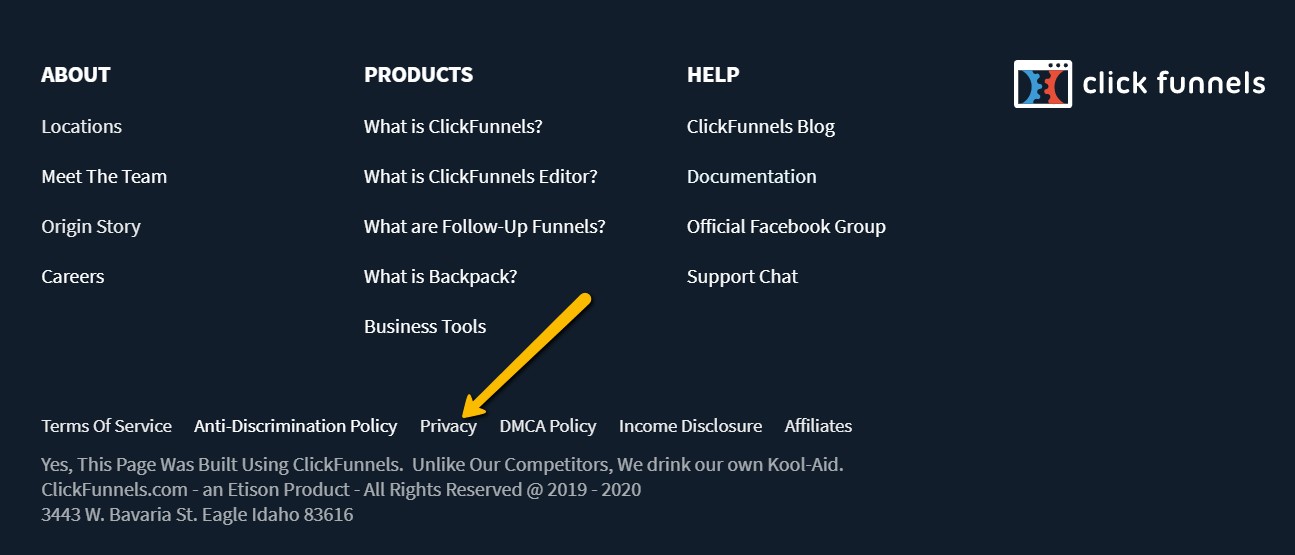Free Privacy Policy Generator
Help your customers trust your website instantly
Generate Privacy Policy Template For Your Website
You can save many hours and serious headaches with our free privacy policy generator. Ensure your business compliances and increase trust today with our template, which has been updated to include the requirements of the General Data Protection Regulation (GDPR).
What is a Privacy Policy?
A privacy policy is a legal statement that discloses the ways your business gathers, uses, discloses, and manages a person’s information. Personal information can be any data that can be used to identify an individual and isn’t limited to just name, phone number, and email address.
Privacy policies should be publically available at all times to your leads, customers, and clients. Typically, businesses share their privacy policy on their website and make it easily accessible via a link in the footer.

Do You Need a Privacy Policy?
If you own a business or have a website that collects user data, then by law you will need a privacy policy. The information that’s in your privacy policy will need to be in accordance with the laws of your area.
How To Create a Privacy Policy Using Our Free Tool?
We’ve made it super easy to create your privacy policy online for free. Rather than spending hours putting together this legal document, our privacy policy generator can do it in a matter of minutes.
Start by entering your company’s information — name, email, phone number, and address. Then enter the URL of your website.
Finally, click “Send Me My Privacy Policy” and you’re all done. We’ll send you your shiny new privacy policy, 100% free.
Understanding The Laws Behind Your Privacy Policy
In the U.S., there is no single federal or state legislation that requires businesses and website owners to have a privacy policy, but there are several state and federal laws that require you to disclose your privacy policy under specific circumstances.
For example, the California Online Privacy Protection Act (CalOPPA) says that if you collect any personal information from California-based users, then you must have a privacy policy available for those users to review.
Similarly, the Children's Online Privacy Protection Act (COPPA) requires you to have a privacy policy if you collect information from children.
And there are a lot more of these.
The effect, then, is that to reasonably operate within the bounds of privacy laws in the U.S., you must have a privacy policy and you must disclose how you’re using the data you’re collecting.
In Europe, the most popular privacy regulation is GDPR (General Data Protection Regulation), which requires websites to not only have a privacy policy, but also to notify users when their information is being collected, to not disclose a user’s information without their permission, and more.
In Canada, the federal law is the Personal Information Protection and Electronic Documents Act (PIPEDA). Similar to GDPR in Europe, PIPEDA requires companies to get their user’s consent before they collect, use, or disclose personal information. And information can only be used for the stated purpose that it was collected.
In Australia, the primary legislation is Australia's Privacy Act of 1988, which states that only information that is relevant to the company’s functions may be collected from consumers. Once collected, consumers have a right to know why it’s been collected and who is going to see it.
In the United Kingdom, the Data Protection Act governs consumer privacy. These are its eight primary principles…
1.Personal data is processed fairly and lawfully.
2.It is only obtained for specified, lawful purposes.
3.The data is adequate, relevant, and not excessive for the purpose it was collected.
4.The data is accurate and up to date.
5.The data will not be kept for longer than is necessary.
6.Personal data is processed in compliance with the rights of the users.
7.Appropriate measures are taken against unlawful data processing.
8.The personal data cannot be transferred to a country outside the European Economic Area unless that country guarantees an adequate level of protection of personal data.
Use our privacy policy generator above to get started!
Creating a Privacy Policy For Ecommerce
All e-commerce stores should have a privacy policy on their website, primarily because it’s required by many different state and federal laws, but also because it builds trust with website visitors.
Here are a few tips for creating your e-commerce privacy policy…
Use our free online privacy policy generator above to get started!
Creating a Privacy Policy For Mobile Apps
The biggest mobile app stores — Apple App Store, Google Play Store, and Microsoft Windows Phone Store — all require you to have an up-to-date privacy policy.
You can use our online privacy policy generator to create one for free!
Creating a Privacy Policy For SaaS Businesses
SaaS businesses are data-machines. To be successful, they collect a lot of data and they disperse that data to different places.
It’s important, in your privacy policy, to disclose exactly how user data is being collected, stored, used, and shared.
You can use our free privacy policy generator to get started!
Creating a Privacy Policy For Your Blog
Even though you might not be selling anything on your blog yet, you still need a privacy policy if you’re collecting any sort of information from your website visitors. That includes (but isn’t limited to) name, email address, and phone number.
You can use our free privacy policy generator to get started!